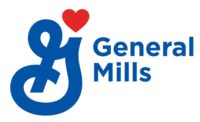General Mills’ Portfolio Shifts Toward Nutrition
Improvements include positive nutrition steps such as increasing protein, fiber, vitamins and minerals


General Mills greeted 2015 by saying it will launch more than 50 new products. "We're putting our consumers at the center of our new product innovation by rapidly addressing evolving food trends and investing in areas that our consumers value, including added protein, gluten-free, and products made with simple ingredients," says Jeff Harmening, executive vice president and chief operating officer, U.S. Retail.


General Mills, Minneapolis, says it has improved the health profile of 76% of its US retail sales volume since 2005, when it first established a “Health Metric” to encourage progress on nutrition and health improvements.
These improvements include positive nutrition steps such as increasing protein, fiber, vitamins and minerals; or reducing limiters such as calories, sodium, sugar and fat.
During fiscal 2014, General Mills says it improved more than 18% of its US retail sales volume with reductions in trans fat, sugar and sodium driving the biggest gains. All improvements signify a 10% or more reduction in limiters or a 10% or more increase in positive nutrients.
“After 10 years of making health improvements among our brands, health and wellness is now engrained in our culture at General Mills,” says Maha Tahiri, General Mills chief health and wellness officer. “Our brands are proactively looking for ways to deliver on consumers’ desire for products that both taste great and are good for them. That will continue to drive our business over the next 10 years and beyond.”
Tahiri also oversees the Bell Institute of Health and Nutrition, a General Mills affiliate with doctorate-and master-level scientists and registered dietitians. Scientists within the Bell Institute publish scientific articles in leading peer-reviewed journals and have contributed to research on a variety of important health topics including: whole grains, digestive health, vascular health, weight management, micronutrients and breakfast.
Over the past decade, the General Mills portfolio has shifted to include both new and reformulated products with improved nutrition. Here’s a review of the company’s health-related achievements during the past 10 years.
Sodium
In 2010, General Mills announced plans to reduce sodium, on average, by 20% in its top 10 categories.
Since Health Metric tracking began in 2005, some of the company’s biggest sodium reductions have come in Chex Mix, which reduced sodium by nearly 40% since 2008; and frozen pizza, which reduced sodium by more than 25% since 2008.
General Mills also has focused on new lower sodium products, and will continue to reduce sodium where possible throughout its portfolio—without a taste compromise.
Sugar
General Mills has reduced sugar in its Big G kid cereals by 16% since 2007. The company also has reduced sugar in other areas of its portfolio, including yogurt and snacks. Since 2007, the company has reduced sugar in its main kid yogurts–Yoplait Go-GURT, Yoplait Trix and Yoplait Kids–by nearly 25%.
The company says it also has made strides in reducing sugar in several varieties of Cascadian Farm chewy granola bars by more than 10%.
Trans Fat
Since 2008, General Mills has reduced trans fat to zero grams in more than 250 of its US retail products. Today, more than 90% of the company’s US retail products are labeled as zero grams trans fat.
Examples of products labeled zero trans fat include: Betty Crocker Rich and Creamy Frosting, Pillsbury Toaster Strudel, Toaster Scrambles, all Pillsbury Grands! refrigerated biscuits and “simply,” a new line of cookies, bread and biscuits. All Totino’s Pizza and Pizza Rolls also are labeled zero grams trans fat.
General Mills continues its efforts to remove trans fat while it maintains the quality and taste consumers expect.
Whole Grain
Nine out of 10 Americans aren’t getting enough whole grain. To help address this need, General Mills started adding whole grain to cereal in 2005, and today, every Big G cereal contains more whole grain that any other single ingredient and at least 10g of whole grain per serving. More than 20 General Mills cereals deliver at least 16 grams.
Vitamins and Minerals
Many people lack key nutrients in their diets. General Mills has been fortifying products since the 1940s when it started adding vitamins and iron to Gold Medal and its other flours. Today, 100% of Big G kid cereals are fortified with vitamin D as well as iron and B vitamins. General Mills’ U.S. protein snack bars deliver a range of 6g to 10g of protein per bar. And, the company’s Fiber One brand offers 45 fiber-added products.
Calories
The company has been working to reduce calories across its portfolio to help combat obesity.
Today, more than 950 U.S. Retail products contain 150 calories or fewer per serving, representing approximately 60% of General Mills’ U.S. retail products. And, approximately 575 General Mills U.S. Retail products contain 100 calories or fewer per labeled serving. This represents approximately 35% of General Mills’ U.S. retail products.
Fiscal 2014 marks the 10th year General Mills has tracked and quantified health improvements using the company’s “Health Metric,” a corporate initiative overseen by General Mills’ Health and Wellness Council and the General Mills Bell Institute of Health and Nutrition.
“General Mills is committed to continuously improving the health profile of our existing products while introducing innovative, new products with strong health credentials,” says Tahiri. “What gets measured gets improved, so we will continue to track our health improvements and find new ways to offer consumers great tasting products that are also good for them.”
Looking for a reprint of this article?
From high-res PDFs to custom plaques, order your copy today!









